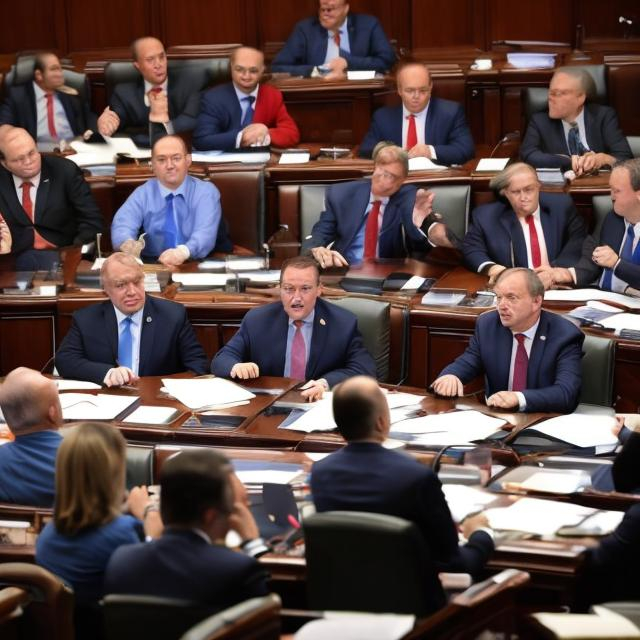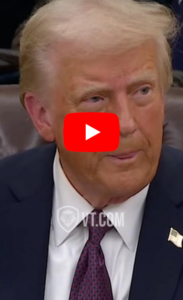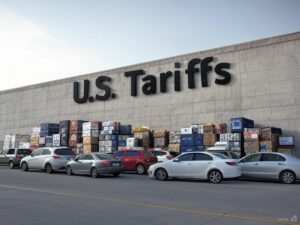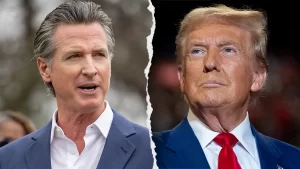
Republican Economic Policies: A Closer Look at Conservative Fiscal Principles
The Republican party’s approach to economic policies stands as a cornerstone and defining feature of their political platform. In this comprehensive blog post, we embark on an exploration of the fundamental fiscal principles that intricately shape and guide the GOP’s overarching vision for key aspects of economic governance. This journey will delve into the party’s perspectives on taxation, government spending, and strategies for fostering sustainable economic growth. By unpacking these core elements, we aim to provide a nuanced understanding of the Republican Party’s economic philosophy and its implications on the broader economic landscape.

Republican Tax Reform and Lower Taxes
At the heart of Republican economic policy lies a central tenet — a steadfast belief in tax reform and the pursuit of lower taxes. The GOP champions the notion that alleviating tax burdens on both individuals and businesses catalyzes heightened economic activity. The argument posits that by strategically reducing taxes, businesses are empowered to channel resources into investments, expand their workforce through increased hiring, and furnish consumers with greater disposable income. This collective effort, Republicans contend, culminates in a flourishing economic landscape marked by robust growth and prosperity. In this light, the party positions tax reduction as a pivotal instrument in driving forward the engine of economic advancement.
Limited Government Intervention
A prevailing sentiment among Republicans is a belief in minimizing the government’s role in the economy, advocating for a laissez-faire approach that allows businesses to operate with minimal regulatory intervention. Central to their economic philosophy is the conviction that a free-market environment fosters competition and innovation, and, in turn, drives overall economic growth. This perspective often manifests in opposition to measures that seek to expand government control over industries, including stringent environmental regulations and labor laws perceived as potential impediments to business operations.
The GOP contends that a hands-off approach, characterized by limited government interference, is conducive to a more vibrant and prosperous economy. Emphasizing the virtues of individual and corporate freedoms, Republicans argue that businesses should possess the autonomy to make decisions without excessive governmental constraints. By prioritizing a free-market system, they envision a landscape where market forces drive innovation, result in competitive pricing, and contribute to the dynamic evolution of the economy. In essence, the Republican approach underscores the belief that a minimal government role will pave the way for a flourishing and resilient economic environment.

Reducing Government Spending
Republicans have a strong emphasis on reducing the size and scope of government spending. They advocate for smaller budgets and prioritize fiscal responsibility, believing that excessive government spending can lead to deficits and long-term economic harm. They argue that high levels of government spending can lead to increased national debt, which can have negative effects on the economy, such as higher interest rates, reduced investment, and slower economic growth. Republicans often push for measures to cut government spending, streamline government programs, and reduce waste in order to promote a more efficient and sustainable fiscal policy. They believe that a smaller, more efficient government will lead to a healthier economy and greater prosperity for all citizens.
Balancing the Budget Like a True Republican
Republicans consistently prioritize the goal of achieving a balanced federal budget, viewing it as crucial for maintaining fiscal discipline and preventing excessive government debt. This objective often requires making difficult decisions about government programs and expenditures, as well as finding ways to increase revenue or decrease spending. They argue that a balanced budget promotes economic stability, reduces the burden of interest payments on the national debt, and ensures that future generations are not saddled with unsustainable financial obligations. Republicans often advocate for measures to rein in government spending, reform entitlement programs, and promote economic growth to achieve this goal, emphasizing the importance of responsible fiscal management for the long-term health of the economy.

Pro-Business and Pro-Growth Policies
Republicans are recognized for their staunch support of pro-business and pro-growth policies. They advocate for deregulation, aiming to reduce bureaucratic barriers and red tape that can hinder business operations. In addition, they champion corporate tax cuts, believing that lower taxes for businesses will stimulate investment, innovation, and job creation. Furthermore, Republicans often propose incentives and subsidies to encourage businesses to expand, invest in new technologies, and hire more employees. These policies are designed to foster a favorable environment for economic growth, entrepreneurship, and the creation of new job opportunities. Republicans argue that by creating a more business-friendly climate, they can spur economic expansion, attract investment, and ultimately enhance the prosperity of the nation.
Republican Trade Policies
Republican economic policies also touch on trade. While they support free trade principles, they also prioritize protecting American industries and jobs. The party often takes a pragmatic approach to international trade agreements, aiming to strike a balance between open markets and protecting domestic interests.
In Conclusion
Republican economic policies reflect a belief in free-market principles, lower taxes, limited government intervention, and fiscal responsibility. These policies are central to the GOP’s vision for a strong and prosperous economy. As with any political stance, they generate debate and discussion.
To stay informed about the latest developments in Republican economic policies and explore different perspectives on this topic, consider these conservative resource websites:
Understanding the nuances of fiscal policy is crucial for informed political discourse and decision-making. Keep exploring, and stay engaged in the conversation about Republican economic principles and their impact on the nation.





